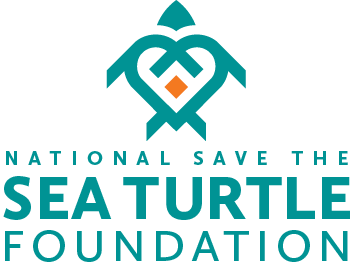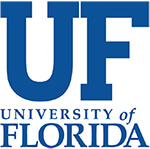
Meet the Students:
National Save The Sea Turtle Foundation Scholarship
Recipients Chosen at the University of Florida
David Duffy, Ph.D., Assistant Professor1,2 Sandra Loesgen, Ph.D., Associate Professor1,3
1The Whitney Laboratory for Marine Bioscience and Sea Turtle Hospital, University of Florida, St. Augustine, Florida 32080, USA.
2Department of Biology, College of Liberal Arts and Sciences, University of Florida, Gainesville, Florida, 32611, USA.
3Department of Chemistry, College of Liberal Arts and Sciences, University of Florida, Gainesville, Florida, 32611, USA.
2Department of Biology, College of Liberal Arts and Sciences, University of Florida, Gainesville, Florida, 32611, USA.
3Department of Chemistry, College of Liberal Arts and Sciences, University of Florida, Gainesville, Florida, 32611, USA.
The Whitney Laboratory for Marine Bioscience and Sea Turtle Hospital (www.whitney.ufl.edu/conservation--sea-turtle-hospital) on Florida’s Northeastern Atlantic coast is a research institute of the University of Florida (UF). With support from the National Save The Sea Turtle Foundation’s (NSTSTF) Scholarship Fund, we are advancing our understanding of and ability to mitigate threats to marine turtles, primarily the sea turtle tumor disease fibropapillomatosis. Fibropapillomatosis is thought to be caused by a combination of viral infection and environmental degradation, and as such requires better understanding of the complex interplay between viral pathogens, the sea turtle immune system and environmental pollutants. NSTSTF has generously supported the research of three promising graduate students who are tackling various aspects of this devastating disease, Jessica Farrell, Elizabeth Kaweesa and Dorothy Mitchell.
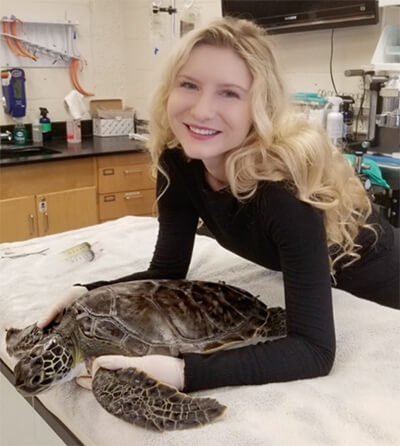
Jessica A. Farrell (Duffy & Martindale Labs) Project: Genomic and Environmental FP drivers.
My name is Jessica Farrell and I am a PhD candidate at the University of Florida’s (UF) Whitney Laboratory for Marine Bioscience and Sea Turtle Hospital. Originally from England, my dream has always been to study marine biology, and an Operation Wallacea research expedition to Indonesia in 2011 inspired me to go after my dream career in marine conservation. In 2016 I graduated with a BSc from the University of Sheffield, UK, with a new-found love for using virology and pathology to help protect endangered species, and in 2017 I was lucky enough to intern with the University of Sydney and Sydney Institute of Marine Science on a “Marine Cloud Brightening” project to save the Great Barrier Reef, Australia. It is this combined love for marine conservation and the study of aquatic diseases that guided me to UF’s Whitney Lab and Sea Turtle Hospital, where I get to pursue both areas of biology when investigating the FP panzootic (animal pandemic) in Florida’s vulnerable green sea turtle populations.
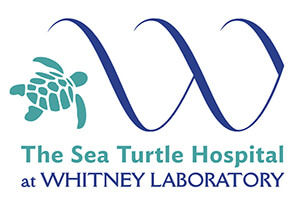
The Whitney Lab’s Sea Turtle Hospital specializes in treating sea turtles afflicted with this debilitating tumor-causing disease and is therefore the perfect facility to use this unique opportunity to learn more about FP and how we can mitigate it, while sea turtles are cared for and rehabilitated by the highly experienced veterinary team. Fibropapillomatosis is a complex disease, involving not only the presence of a sea turtle specific herpesvirus, but the exposure to an environmental stressor. Juvenile green turtles are the species and life-stage most impacted by FP, and their unique habitat of shallow, human-proximate coastal regions highly suggests that the environmental stressors responsible for exacerbating the severity of this disease are due to human activities. As such, my PhD research, although focusing on FP, utilizes a variety of approaches and scientific disciplines to tackle this disease from as many angles as possible. I have profiled FP tumor growth and examined the effect of targeted drug treatments (human precision-medicine inspired) on slowing such growth (Farrell et al. 2021, Farrell et al. 2018, Yetsko et al. 2021). I’ve applied advanced microscopy to determine fine detail tissue and cellular information regarding the make-up of the tumors themselves and I have investigated the host and virus gene expression activity within tumors (Farrell et al. 2021; Yetsko et al. 2020). I have also used molecular biology approaches to compare the level of virus in different tumor types, as well as to develop a highly specific methodology (environmental [e]DNA) to detect and monitor several species of sea turtle and their FP-associated virus (ChHV5) from just sand and water samples (Farrell et al. 2021). In addition, as environmental stressors are a key piece to the FP-puzzle, I have examined plastic ingestion in Florida’s vulnerable post-hatchling “washback” turtles (Eastman et al. 2020), with shocking results (96% of turtles had plastics in their GI tract). This work would not be possible without the donation of such generous scholarships, like that from the National Save The Sea Turtle Foundation. Thank you so much for helping us to expand our knowledge on this devastating disease and helping us get closer day by day to helping conserve these beautiful marine creatures.
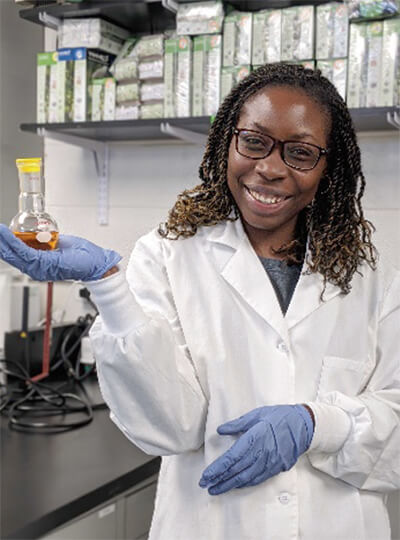
Elizabeth N. Kaweesa (Loesgen Lab) Project: Viral Drivers of FP and Anti-Cancer Drugs.
Hello. My name is Elizabeth Kaweesa and I am a graduate student at the Whitney Lab for Marine Bioscience at the University of Florida. I joined Prof. Sandra Loesgen’s laboratory in 2015 with an interest in drug discovery. I employ cellular biology to better understand cancer, its progression, metabolism, and metastasis. This work helps us to develop anti-cancer drugs to fight these malignant diseases.
I grew up in a fishing village on the shores of Lake Victoria in Uganda, Africa. The delightful tropical weather and thick rainforest gave me a deep appreciation for the environment and wildlife. From early on, my family instilled in me the importance of conserving the environment as well as the values of education. From my primary and secondary education in Uganda, to college and graduate school here in the United States, I’ve been mentored by amazing educators and researchers who have inspired me to pursue a career in academia.
Thanks to the National Save The Sea Turtle Foundation Scholarship I am now combining the cancer research techniques developed during my PhD, with sea turtle FP research, to gain a greater understanding of the viral drivers of FP, and identify novel drug treatments for this debilitating disease. My doctoral research involves the screening of natural sources for new cancer drug leads. For example, the widely used clinically anti-tumor drugs doxorubicin and paclitaxel are both derived from natural sources, from bacteria and plants respectively. In fact, over 50% of all FDA approved drugs are inspired by metabolites found in nature. The Loesgen laboratory is screening microbe derived metabolites for new cancer treatments and drug leads. We have found several new chemical entities and tested them in vitro in our laboratory and in collaboration with the National Cancer Institute. In one of my projects, I have been investigating the mode of action of the new bacterial metabolite called mensacarcin. The compound was tested by the US National Cancer Institute and exhibited potent and selective activity against some tumor types. I have characterized in depth its cellular and anti-tumor properties and discovered that mensacarcin’s unique ability to disrupt cell energy metabolism gives it selective cellular toxicity to skin cancer (melanoma) cells, even having potent activity in treatment-resistant melanoma.
In collaboration with Dr. Dave Duffy, we have been looking at the chemo-induction of tumors in Floridian sea turtles. His laboratory has been studying fibropapillomatosis, a now common potentially fatal virulent tumor-causing disease in Floridian sea turtles. My National Save The Sea Turtle Foundation supported work includes investigating anti-tumor drugs in FP and imaging of virions in turtle tissues and creating imaging probes to better understand the relationship of viral load and tumor progression in afflicted sea turtles.
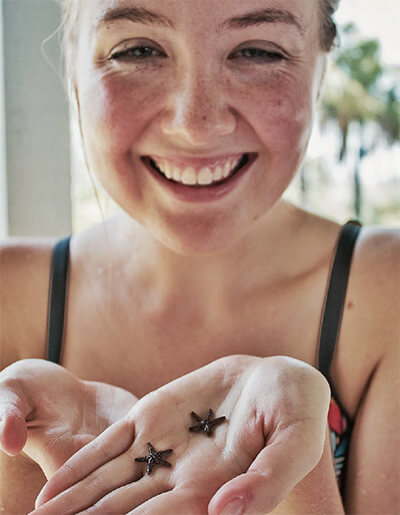
Dorothy Mitchell (Martindale Lab) Project: Genomic and Cellular Drivers of FP
Hi, I’m Dorothy Mitchell and I am a graduate student in Prof. Martindale’s lab at the University of Florida’s Whitney Laboratory for Marine Bioscience, where I study the genetic control of stem cells and their involvement in health and disease.
I grew up on the coast of the Gulf of Mexico in Fairhope, Alabama. I have always been passionate about protecting and learning from the environment. My interest in marine wildlife is longstanding; I have been interested in the various marine organisms in the diverse coastal estuary systems surrounding my home, from the numerous invertebrates to charismatic megafauna like sea turtles. I received my Bachelor of Science in Marine Biology from Auburn University in Alabama. During college, I discovered a passion for using marine model systems to study cellular processes when I started working on tentacle formation in the comb jellyfish Mnemiopsis leidyi. I previously completed an undergraduate research project which allowed me to become familiar with the innovative research going on at the Whitney Lab. I then joined Dr. Mark Martindale’s Lab for my graduate studies, for which I investigate stem cell development and evolution in relation to reproduction and regeneration in comb jellies 1. SeaTurtleHospital-Logo-Teal.jpg. Thanks to the National Save The Sea Turtle Foundation Scholarship I am now using my computational, molecular biology and stem cell expertise to investigate the genome and cancer stem cells of FP. Cancer stem cells are crucial in driving the growth of tumors, and their spread around the body. Cancer stem cells are often also responsible for the regrowth of tumors after surgery or chemotherapy. Regrowth of tumors after surgical removal is a huge issue when treating FP-afflicted turtles. Over 70% of eye tumors that are removed by surgery end up regrowing. Based on the known role of cancer stem cells in human and other animal cancers, they are also very likely to be the key agents responsible for FP tumor regrowth. My ongoing work is examining which cancer stem cell genes are activated in FP, and visualizing those cancer stem cells within established and regrowth tumors. Improved understanding of the precise role of cancer stem cells in FP tumor growth, regrowth and spread (metastasis), can ultimately lead to improved anti-cancer treatments to lessen the burden of FP tumors, especially post-surgical regrowth on sea turtles.
Future Research Directions
We are extremely grateful to the National Save The Sea Turtle Foundation and its donors, for supporting our sea turtle research. In future years we hope to expand our research to encompass additional threats to sea turtles (unfortunately, of which there are many). We have recently begun to investigate the effect of plastic ingestion in sea turtles, from even the earliest life stages (Eastman et al. 2020). The next step of our plastic ingestion work is to apply the molecular health assessment tools (molecular biology and histology-based) developed for our FP research, to determine what the health consequences are of so much plastic in these vulnerable post-hatchlings. In Fall 2021 we will host an NSTSTF supported collaborator meeting to discuss current needs and future research directions of FP research, in order to progress our ability to rehabilitate and release FP-afflicted turtles as efficiently and successfully as possible. In future (post-Covid) years we plan on developing this meeting into an open invitation symposium (oral and poster presentations) on the latest sea turtle fibropapillomatosis molecular research. It is an exciting time for sea turtle disease research, advances in technology are allowing us to figure out many of the long-standing mysteries about sea turtles, particularly in relation to the enigmatic fibropapillomatosis disease. With continued support we will uncover yet more mysteries of sea turtle health, and make meaningful impacts towards the rehabilitation and conservation of these marvelously enigmatic animals.
Helping Sea Turtles Survive for 39 Years
A NON-PROFIT ORGANIZATION
State of Florida Registration Number CH-2841 | Internal Revenue Code 501 (c) (3)
Web Design & Development by Web Expressions, LLC
